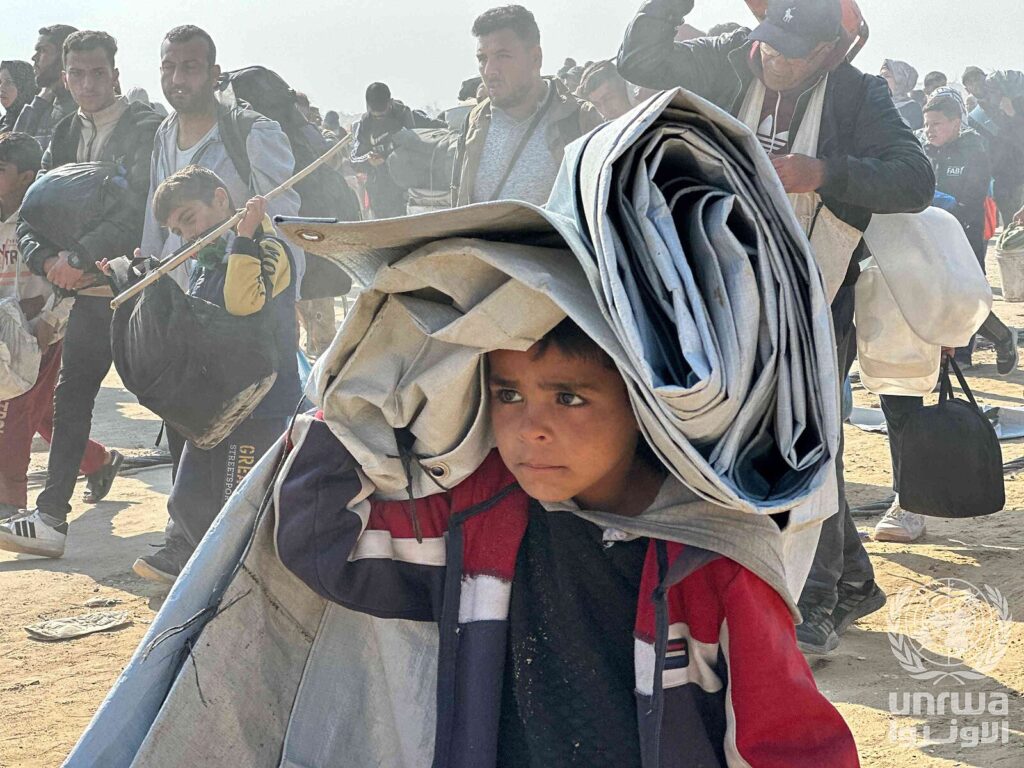A New Round of Negotiations in the Middle East

By: Ghassan Rubeiz / Arab America Contributing Writer
Following the devastating 12-day Israel-Iran conflict, the Middle East faces an extraordinary moment. Multiple peace processes are unfolding simultaneously, each holding the potential to impact the geopolitical landscape significantly.
The Palestinian question is at the core of all of them: Gaza, as the Middle East’s open, festering wound, has ironically become the gateway to solving many of the Middle East’s other problems.
President Trump announced last week that a Gaza ceasefire agreement is closer than ever, cautioning Netanyahu that the time has come to end the war. Netanyahu’s visit to the White House on Monday addressed a range of strategic issues, including Gaza, Iran, Lebanon, Syria, and others. While the negotiators showed flexibility and an eagerness to please Trump, Washington’s wide contacts produced no breakthrough. Still, the talks over Gaza are at the heart of a long and ambitious process of conflict resolution.
Israel restarted informal talks Sunday in Doha with Egyptian and Qatari intermediaries representing Hamas negotiators. Formal talks started Wednesday. Significant disagreements remain on ending the war, Israeli withdrawal from Gaza, and Hamas’s future. Israel insists on maintaining control after the war and expects Hamas leaders to leave. But Hamas refuses to accept surrender and continued occupation as the price of peace.
Both sides face mounting pressure from Israeli hostages’ families, growing international disapproval, and rising expectations of the White House. The anticipated ceasefire, crafted by the White House over recent months, would provide a two-month negotiation period for freeing captives on both sides, ending the war, forming Gaza’s governance structure, and planning reconstruction. Rebuilding Gaza will be the greatest challenge.
Meanwhile, separate talks are underway to end hostilities on Israel’s borders with Syria and Lebanon. Covert US-Iran nuclear negotiations have resumed, while Saudi Arabia continues discreet discussions about potential Israeli normalization.
In Lebanon, the US is working with President Aoun’s government to address Hezbollah’s military presence after Israel weakened the militia. Hezbollah is considering demilitarization but is demanding Israeli withdrawal from all occupied Lebanese territories. Syria presents a greater challenge than Lebanon. Israel has occupied the Golan Heights for decades, and returning that territory remains fundamental to any peace agreement. Damascus appears unlikely to end hostilities before Saudi normalization with Israel occurs. Saudi normalization, in turn, depends heavily on addressing Palestinian concerns and would require a new Israeli government with a different political outlook to grant Palestinian humanitarian and political rights.
Iran’s political future will be pivotal to the future of the Middle East. The more secure Iran feels the more cooperative its regional allies are likely to become. The June war, beginning with an unprovoked Israeli attack followed by devastating US strikes, damaged Iran’s nuclear facilities but failed to eliminate its nuclear capacity. There are hints that Iran will resume talks with the US despite the recent devastation. While the US appears willing to reopen communication with Tehran, Netanyahu remains anxious about any diplomatic contact between the US and Iran. His recent visit to Trump is likely to ask for US authorization for Israel to strike Iran again to prevent Tehran from rebuilding its nuclear program.
These negotiations’ prospects depend on Trump’s capacity to view diplomacy as conflict resolution rather than a transactional political tool. The US president seems to aim at a quick fix in Gaza to move on to a grand bargain in the region.
Iran’s leadership remains divided between revolutionary hawks and diplomatic statesmen. If moderate President Masoud Pezeshkian prevails, Iran will focus on diplomacy and regional stability. And Israel desperately needs new leadership to better match its own security with Palestinian freedom. Tel Aviv currently has a unique chance to transform its military achievements into diplomatic progress. Yet Netanyahu does not seem to grasp this rare opportunity.
The Middle East stands at a historic inflection point. Choices made in the coming weeks will echo through generations, determining whether this diplomatic moment becomes the foundation for stability or yet another chapter in the familiar cycle of violence.
Ghassan Rubeiz is the former Middle East Secretary of the World Council of Churches. Earlier, he taught psychology and social work in his country of birth, Lebanon, and later in the United States, where he currently lives. He has contributed to political commentary for the past twenty years and delivered occasional public talks on peace, justice, and interfaith subjects. You can reach him at rubeizg@gmail.com
The views and opinions expressed in this article are those of the author and do not necessarily reflect the position of Arab America. The reproduction of this article is permissible with proper credit to Arab America and the author.
Want more articles like this? Sign up for our e-newsletter!
Check our blog here!








